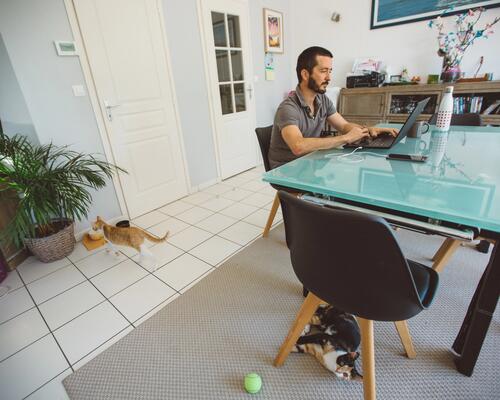What are the advantages of exercising at work?
Bringing sport into the workplace offers multiple advantages for company stakeholders:
• Workers·
This is an excellent option, especially for employees that have little free time in the evenings or on the weekends. Workers can exercise while at work, during their lunch break for example. Depending on the company, running clubs could be organized, an employee gym could be set up or groups could use meeting rooms for coach-led stretching, yoga or relaxation sessions. It makes exercise easy! While exercising in the workplace is often voluntary, some managers strongly recommend it. It's better that employees participate willingly so that it doesn't become a daunting task, if not, exercise loses all benefits. Employees enjoy better health, which has a positive impact on their productivity and so much more!
• For managers·
While productivity is stimulating and fulfilling for employees, it is just as valuable to managers and the economic well-being of the company. Productivity is truly everything! According to a study conducted by Goodwill-Management in September 2015, physical activity and sports in the workplace increase productivity by 6 to 9%.
Workplace exercise also improves employees' health and well-being so that they are sick less often and take fewer absences from work. It's a real win-win situation!
In addition, more and more managers are favouring unorthodox team building tactics and sport is the perfect opportunity to bring teams together. Gear up in your sports outfit and get ready for an icebreaker where you learn more about your colleagues, like Chantal from accounting who is actually an ace runner and arm wrestler.
• Business
In short, all of the benefits of sport for employees and company managers are a real tool for developing a company's social and economic well-being. Workplace exercise will also improve the employer's brand image. The existing team will attract new collaborators. It's a virtuous circle that benefits everyone:
- lower employee stress;
- fewer absences;
- prevents MSDs, or musculoskeletal disorders caused by sitting for long periods;
- increased productivity;
- strengthens team spirit and cohesiveness;
- improves the social climate.





